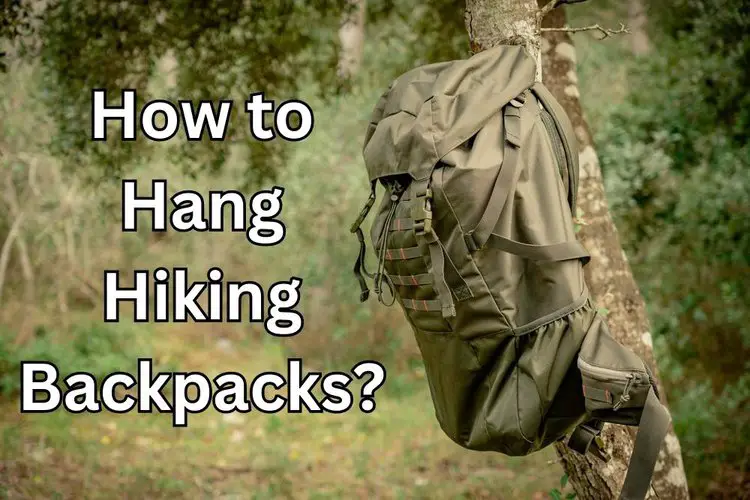Whether you’re on a multi-day backpacking trip or simply storing your hiking backpack at home, it’s important to know how to properly hang and secure it.
On the trail, hanging your backpack can protect your gear from animals and prevent it getting wet or dirty. While at home, proper storage can help prolong the lifespan of your backpack and ensure that it’s ready for your next adventure.
In this article, we’ll explore some methods for hanging your hiking backpack, as well as some tips to keep your hiking backpacks balanced and stay in top shape.
Key Takeaways
- Hanging your backpack can help keep it clean, dry, and out of reach of wildlife.
- Use a sturdy hook, hanger, or carabiner to hang your backpack.
- When hanging your backpack on the trail, choose a sturdy tree with a branch that is at least 10 feet off the ground and 4-6 feet away from the trunk.
- Make sure the backpack is not touching the tree trunk to prevent animals from reaching it.
- Always follow Leave No Trace principles when hanging your backpack on the trail.
- Properly hanging (when storing )your backpack will help it last longer and make it easier to access when you’re ready to hit the trail.
Contents
Hanging Backpacks while resting on the Trail
When you’re on the trail, you may need to take a break or stop for lunch. Hanging your backpack can help keep it off the ground and out of the way. Here are a few methods for hanging hiking backpacks on the trail:
Method 1: Use a Tree
One common way to hang your backpack is to use a tree.
Find a sturdy tree with a branch that is at least 10 feet off the ground and at least 6 feet away from the trunk.
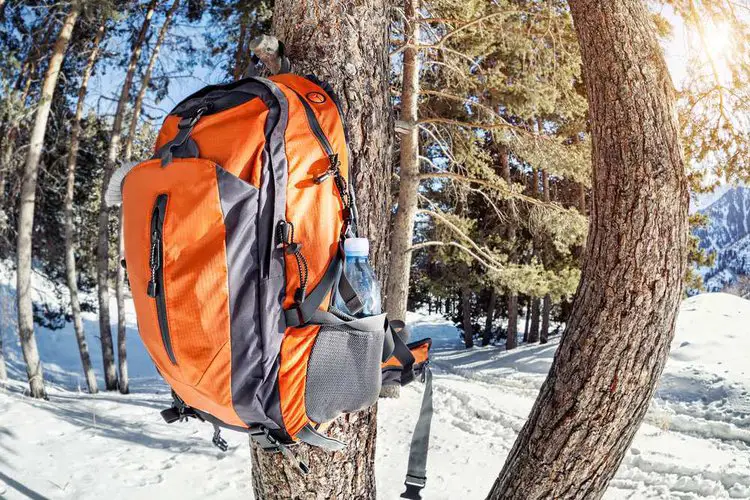
Tie a rope or cord to the branch using a clove hitch or a bowline knot. Then, loop the other end of the rope through the shoulder straps of your backpack and pull it up, using a secure knot like a half-hitch or a taut-line hitch to keep it in place.
Make sure your backpack is at least 12 feet off the ground and 6 feet away from the trunk to keep it out of reach of wildlife.
What if the tree has no branch?
It’s not always all the tree comes with study branches for you to hang your gear, they maybe a small tree with weak branches or a tall and old tree with the high branches out of your reach.
Here’s a clever trick you can do to hang your hiking backpack in such case:
Method 2: Create a makeshift hanging system
If you don’t have access to a pole or a bear hang system, you can create a makeshift hanging system by tying a rope between two trees and suspending your backpack from the rope.
Start by finding two trees that are strong and far enough apart to create a secure hanging system. Tie the rope tightly around each tree, making sure the rope is at least 10 feet off the ground.
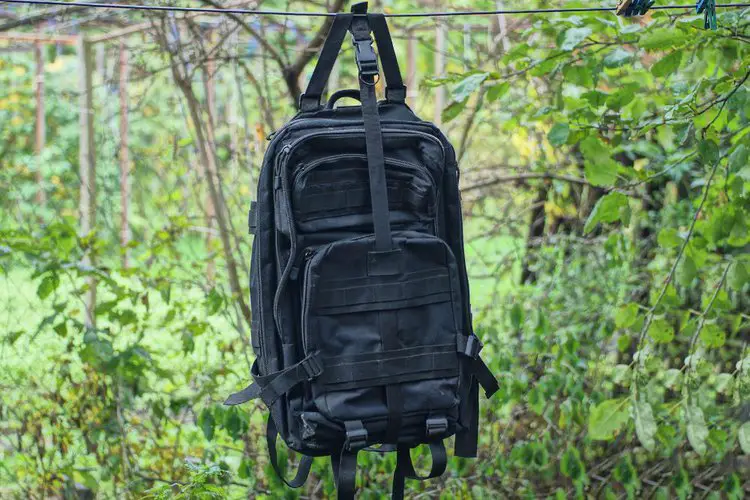
Then, tie the backpack to the rope using a secure knot, such as a clove hitch or a bowline knot.
Make sure the backpack is at least 4 feet off the ground and away from the trees to prevent animals from reaching it.
Lastly, test the system to make sure it is secure before leaving your backpack unattended.
Alternatly, you can use a long stick replace the rope in this method for more stability (in case you can find one).
Method 3: Use a Bear Hang
A bear hang is a more advanced method of hanging your backpack that requires a bit more effort, but provides greater protection against wildlife.
To create a bear hang, find a sturdy tree with a branch that is at least 15 feet off the ground and at least 4 feet away from the trunk.
Tie a rope or cord to the branch using a clove hitch or a bowline knot, and then toss the other end of the rope over a higher branch that is at least 20 feet off the ground.
Tie a rock or other heavy object to the end of the rope, and then hoist your backpack up using the other end of the rope.
Once your backpack is hanging, tie the remaining rope to a nearby tree or object to secure it in place.
This method keeps your backpack even higher off the ground and away from wildlife. But I think it’s only applicable for light backpacks with little gear. As for the heavy one, we might require a really big and heavy rock to do the job.
Notes when hanging hiking backpacks on the trail
Here are some notes when you hang hiking backpacks on the trail to make the most of it.
- When selecting a tree or post to hang your backpack, make sure it’s sturdy and won’t bend or break under the weight of your backpack. Avoid using fragile or endangered plants or trees.
- Your backpack should be at least six feet off the ground to protect it from wildlife, but not too high that it’s difficult to reach.
- Whether you’re tying your rope or cord to a tree or post, make sure you use a secure knot that won’t slip or come undone. Check the knot’s security by giving the rope a gentle tug.
- Remember to always practice Leave No Trace principles and avoid damaging the trees or the surrounding environment.
- When hanging your backpack, make sure it’s evenly balanced and won’t tip over.
- Hang your backpack in a location that’s easy to reach, but out of the way of foot traffic or wildlife.
Storing Backpacks (by Hanging them) at Home
When you’re not using your hiking backpack, you may need to store it at home. This is easy to do and won’t require any complicated techniques like on the trail. All you need to do is to find a hook and hang your backpack over it.
Here are some tools for hanging your backpack to store it:
Wall hook
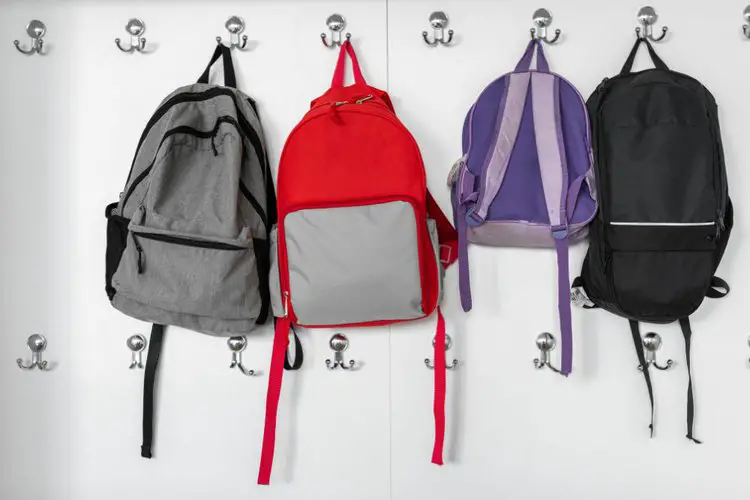
Install a wall hook in your closet or storage area and hang your backpack from it. Make sure the hook is sturdy enough to support the weight of your backpack.
- High Quality Material - These coat hooks are made of good quality zinc die cast material, the screws...
- Versatile Hooks - These coat hooks design with double hooks, can be used in any room, such as,...
- Easy to Install - This Classic wall mounted double hook is very easy to install in your home. Each...
Last update on 2023-11-11 / Affiliate links / Images from Amazon Product Advertising API
Closet rod

If you have a closet with a rod, you can hang your backpack from a hanger and hang the hanger on the rod.
- Pack of wooden hangers with 360-degree rotating feature
- Lightweight, yet strong in construction, to efficiently hang heavy garments like coats, suits, and...
- Suitable for all types, sizes, and styles of clothing
Last update on 2023-11-11 / Affiliate links / Images from Amazon Product Advertising API
Freestanding rack
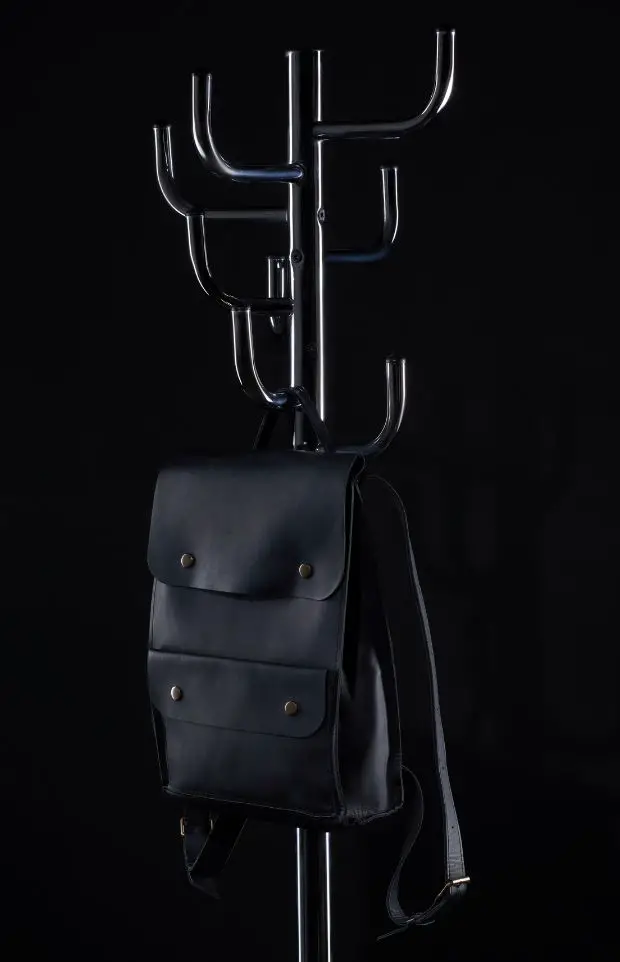
You can purchase a freestanding rack designed for storing backpacks. These racks are usually made of metal or plastic and have hooks or straps for holding your backpack.
- Height-Adjustable Coat Rack: This coat rack features three height installation options at 39.8,...
- Sturdy Wood Material: Crafted from high-quality, solid wood, this coat rack is sturdy and strong...
- Sufficient Storage Space: The coat rack includes 8 storage hooks to provide plenty of space to hang...
Last update on 2023-11-11 / Affiliate links / Images from Amazon Product Advertising API
Some notes when hanging hiking backpacks for storing
When storing hiking backpacks at home, it’s important to take some precautions to prevent damage or deformation. Here are some tips to keep in mind:
- Clean and dry the backpack thoroughly before storing it to avoid mold and mildew buildup.
- Store the backpack in a cool, dry place away from direct sunlight to prevent fading and deterioration of the fabric and materials.
- Keep the backpack off the ground and avoid storing it in a compressed position, which can damage the frame and padding.
- Use a storage container or cover to protect the backpack from dust and debris.
- Check on the backpack periodically and air it out to prevent musty smells and moisture buildup.
Conclusion
To sum it up, hanging your hiking backpack can make a huge difference in keeping your gear safe and protected while on the trail. It is also the best way to store your hiking backpack.
Knowing how to properly hang your backpack can prevent damage from wildlife, weather, and other potential dangers.
By utilizing the methods and tips we’ve covered, you’ll be well-equipped to hang your backpack with ease and confidence. Don’t underestimate the importance of this skill and make sure to add it to your hiking repertoire.
Happy hiking, and always be prepared!

